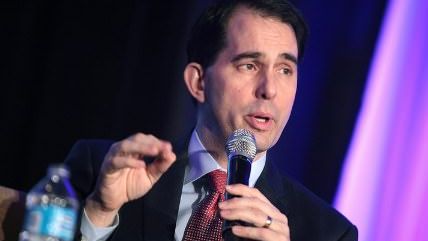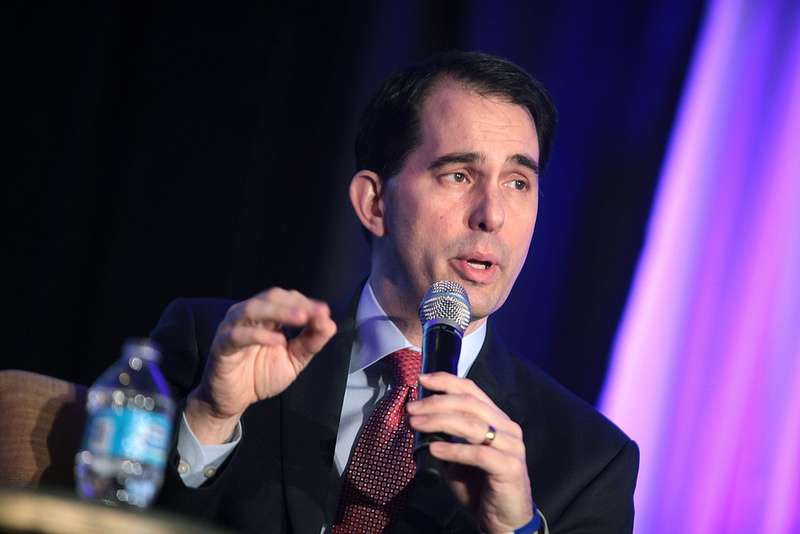What's in Scott Walker's National Labor Reform Plans?
Wisconsin governor wants to bring his most successful battle to the White House


Wisconsin Gov. Scott Walker has been sliding in the polls, as has any Republican candidate who has actual history as an elected official, while Donald Trump and Ben Carson capture voter discontent. But more than that, as Reason's Peter Suderman recently noted, Walker struggles to address—sometimes even to speak coherently about—political issues that come up on the fly and are not part of his carefully planned agenda.
So it should not come as a surprise that days before the next big Republican debate (that's Wednesday if you're keeping track), Walker would release a plan to bring his winning battle against public unions in Wisconsin to the White House should he win.
His quick four-page bullet-pointed proposal is titled "Power to the People, Not the Union Bosses." Here are some highlights of what he's proposing:
- Eliminate the National Labor Relations Board (NLRB). Walker says the agency meant to protect workers' rights has now become a "one-sided advocate for big labor special interests." He wants to do away with the agency and transfer its various powers to the National Mediation Board and the federal courts. Given that the NLRB's existence is authorized by the National Labor Relations Act, he would have to have the cooperation of Congress.
- Eliminate federal unions. Walker wisely invokes President Franklin Roosevelt's warning that union collective bargaining "cannot be transplanted into the public service." He points out that taxpayers are subsidizing millions of hours of lobbying by government unions and promises to work with Congress to get rid of them.
- Establish nationwide right to work (sort of). Given limited control over individual state labor laws, Walker proposes making sure the "default" federal position is to assume all states are "right-to-work" states where citizens cannot be forced to join unions or pay union dues unless states vote to specifically to not be right-to-work states.
- Prohibit forced dues from government workers for political purposes. Noting the Supreme Court about to take on this issue, Walker says, in the event the Court doesn't strike the practice down on the state level, he wants to change the law to end the practice. The same holds true for federal employees. He also wants to make sure federal law protects employees from harassment and threats from union organizers and protects whistleblowers who report union wrongdoing from retaliation.
- Dump regulations that drive up federal construction costs. Walker wants to repeal the Davis-Bacon Act, which forces the federal government to pay artificially inflated "prevailing wages" for construction projects and to end the use of project labor agreements that guarantee highway construction projects to union-only labor.
Those are the big hitters. Read more of his smaller reform ideas (like dumping President Barack Obama's efforts to force employers to pay more salaried employees overtime) here and wonder if any of this is going to come up in the debates (prediction: only in Walker's opening and/or closing statement).


Show Comments (4)